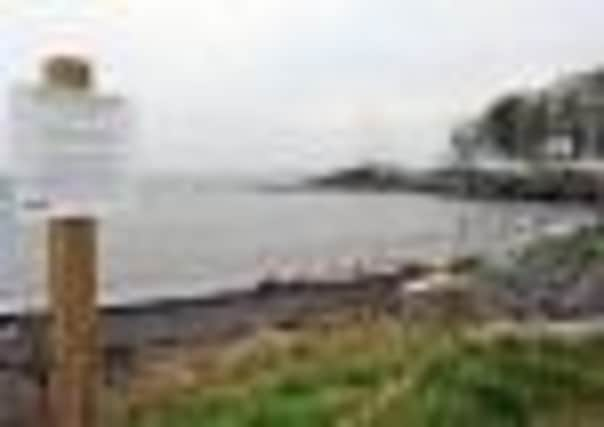Fishing ban slapped on radioactive beach


Warning signs are already in place saying seafood should not be collected, but new restrictions have been issued making it an offence, the Food Standards Agency in Scotland said.
The move is “a precautionary measure” following recent surveys detecting radioactive items on the beach, the food watchdog said.
Advertisement
Hide AdAdvertisement
Hide AdAlthough there is no commercial fishing or shellfish industry in the area, people are known to collect shellfish.
Dr Paul Dale, radioactive substances expert at the Scottish Environment Protection Agency, said: “The Food Standards Agency Scotland has notified the Scottish Environment Protection Agency (Sepa) of the ban at Dalgety Bay.
“Sepa will continue to work with, and support, the FSA by providing whatever monitoring data is necessary to allow them to understand the nature of the contamination and the hazard posed to shellfish.”
Radioactive material was first detected on the foreshore of Dalgety Bay in 1990. The contamination is thought to stem from residue of radium-coated instrument panels on military aircraft which were incinerated and put in landfill in the area after the Second World War.
A lump of contaminated metal was found on the beach in October last year, prompting the closure of part of the foreshore.
Last month, an investigation plan to establish how to clean up the beach was agreed by the Ministry of Defence (MoD) and Sepa.
The MoD’s final Dalgety Bay inspection plan was published by its Defence Infrastructure Organisation and Sepa.
The environmental body said it expects “remediation action to follow urgently” at the conclusion of the investigation.
Advertisement
Hide AdAdvertisement
Hide AdThe Dalgety Bay Particles Advisory Group, set up by Sepa, met for the third time yesterday to monitor the work being carried out.
Alex Elliott, the group’s chairman, said: “We have clarified that all radioactive particles detected using the established protocol should be removed from the beach irrespective of their depth.
“We trust that this will allow appropriate monitoring of the beach to occur whilst the MoD seek to determine the extent of the problem and develop the appropriate remediation options.”
He added: “We were also informed of the action taken by Food Standards Agency and welcome this as it will provide further protection to the public whilst key information to allow a robust risk assessment to be undertaken is collected”.
A Scottish Government spokesman also gave its backing to the FSA’s ban: “The Scottish Government fully supports the work of the Food Standards Agency in protecting public health and today’s measure seeks to support these efforts.”
It was reported last month that in 1958 the then government had been warned about the radiation risk to Dalgety Bay.